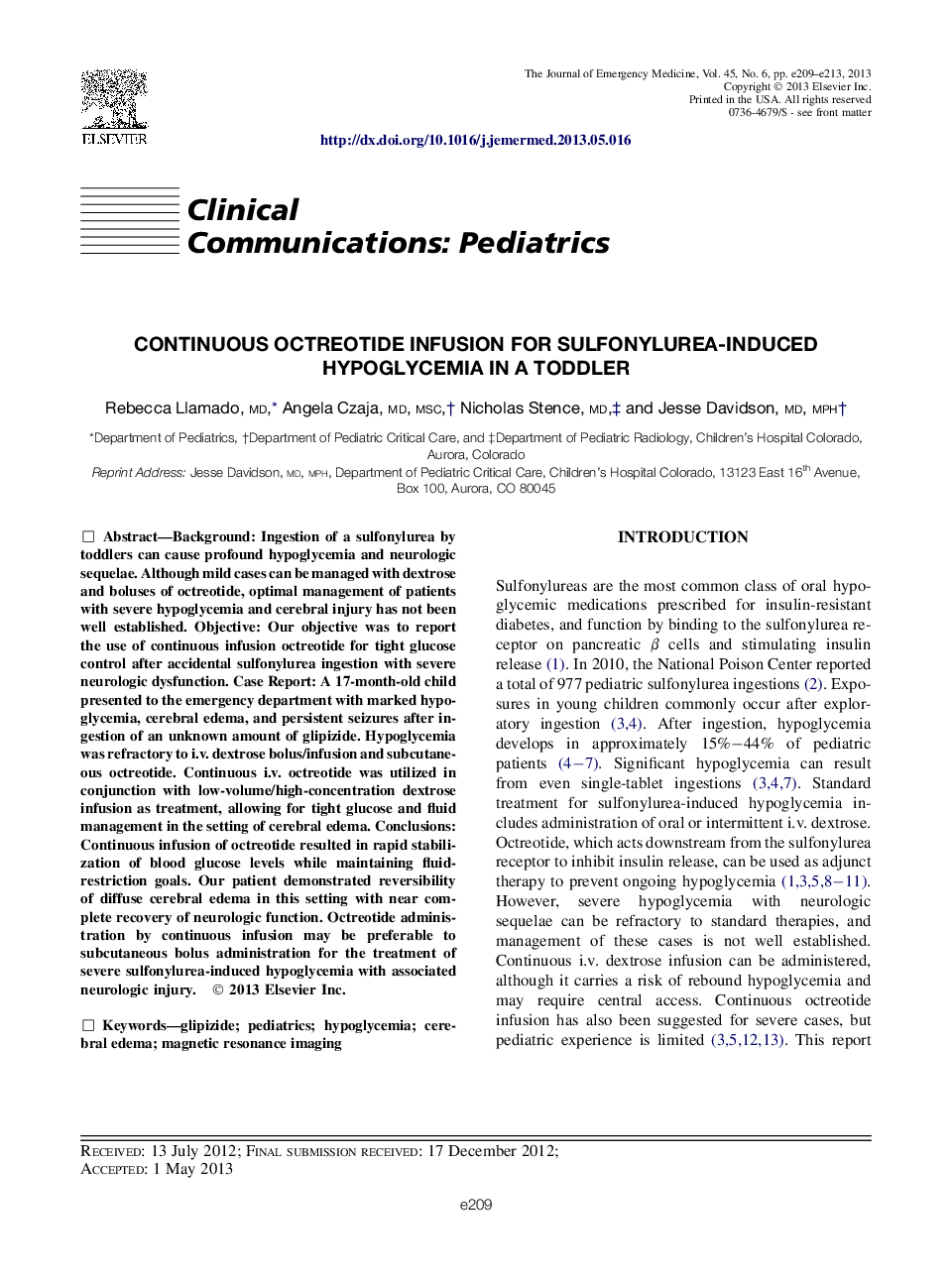| Article ID | Journal | Published Year | Pages | File Type |
|---|---|---|---|---|
| 3246549 | The Journal of Emergency Medicine | 2013 | 5 Pages |
BackgroundIngestion of a sulfonylurea by toddlers can cause profound hypoglycemia and neurologic sequelae. Although mild cases can be managed with dextrose and boluses of octreotide, optimal management of patients with severe hypoglycemia and cerebral injury has not been well established.ObjectiveOur objective was to report the use of continuous infusion octreotide for tight glucose control after accidental sulfonylurea ingestion with severe neurologic dysfunction.Case ReportA 17-month-old child presented to the emergency department with marked hypoglycemia, cerebral edema, and persistent seizures after ingestion of an unknown amount of glipizide. Hypoglycemia was refractory to i.v. dextrose bolus/infusion and subcutaneous octreotide. Continuous i.v. octreotide was utilized in conjunction with low-volume/high-concentration dextrose infusion as treatment, allowing for tight glucose and fluid management in the setting of cerebral edema.ConclusionsContinuous infusion of octreotide resulted in rapid stabilization of blood glucose levels while maintaining fluid-restriction goals. Our patient demonstrated reversibility of diffuse cerebral edema in this setting with near complete recovery of neurologic function. Octreotide administration by continuous infusion may be preferable to subcutaneous bolus administration for the treatment of severe sulfonylurea-induced hypoglycemia with associated neurologic injury.
